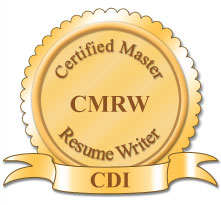 Competitive nature
Competitive nature
I was a late bloomer when it came to the on-line Scrabble game Words with Friends, somehow not discovering the game until last fall. Not surprisingly, I was immediately hooked. As of this writing, I’ve played 136 games, 105 of which I won, 30 of which I lost, and 1 of which I tied (that was my 15-year-old very precocious nephew).
I’m a competitive person, and have been since playing backgammon with my dad at a young age. He would never let me win. I like to play to win, and expect others to do the same.
When I first started playing Words with Friends, I lost about one out of every three games. Then I discovered the Word Strength tool that tells me if I’ve found the highest possible scoring word. That kicked my level of playing (and my average word score) up a few notches. I always attempt to identify that high-scoring word, even if I don’t end up playing it. If I don’t find it, I feel defeated.
Tempted to quit?
I have learned something about myself as a competitor: I don’t like to quit. Not finding the highest scoring word feels like quitting. If I’m losing a game, I create a new game for myself to try to close the gap. Sometimes I succeed. I’ll tell you one thing: I have never resigned a game because my opponent played a 100+ point word, or because I was behind by 100 points, or for any other reason. I will always finish my games, and if I lose, I lose fair and square.
In fact, as much as I don’t like to lose, winning all the time is almost worse. At one point I amassed a 34-game winning streak and actually complained about it. What was the point of playing if I always won? I am motivated by challenge. I will keep playing someone who beats me every time, because one day I will win and I will feel awesome about that.
Not everyone is like me. I had one opponent last week who beat me two games in a row. I was celebrating having a worthy opponent and was excited to keep playing with her; then when I started to beat her by a significant margin in our third game, she abruptly resigned. Similarly, another opponent who pulled out ahead early in our game resigned when I overtook her by changing her word, AZINE, into HYDRAZINE on a triple-word score.
What happened to the thrill of the fight?
I shared my experience with my hairdresser and she told me about a friend who started a competition amongst her friends as to who could take the most steps in a day. When her friend felt sick the first morning of the challenge, she quit the whole thing. She was that unwilling to lose, or to work hard to come from behind.
I’ve heard of people who quit while they’re ahead, which to me means building on your wins and not letting yourself go stale. I’ve recently heard this called “flipping on the up” – making a strong move when you’re at a peak to amplify your success. But quitting when you start to fall behind is, to me, a sign of someone who is not willing to feel hurt or to fight through the tough times.
Setting yourself up for a comeback
In sports, comebacks are the most thrilling stories. You may recall the 2004 Boston Red Sox, the first team ever to come back from a 0-3 record in the American League Championship—and to then clinch the World Series in a sweep. This was their first World Series win in 86 years.
Similarly, in the resume writing world, some of the most powerful bullets are the ones that report a turnaround. Someone who pulled a company, a department or a team out of a slump is a valuable person to have around. That’s a person who doesn’t let bad news get them down.
From what I can tell, the best way to stay motivated to win when you’re losing is to believe it’s possible to win—and at the same time that there’s a real possibility of losing. Convincing yourself there’s no way you’ll win will not motivate you, and thinking you’ll always win will also not motivate you. Studies show that teams who are slightly behind are actually more likely to win than the ones slightly ahead. That’s the point where the possibility of winning is real, and so is the possibility of losing. That edge is what gets the adrenaline going and pushes people into high gear.
How do you respond when you start falling behind? Do you quit while you’re ahead and use your success to reach your next goal, or do you quit when you think you will lose? How does this show up in your life?
Invite me
So… Who wants to play Words with Friends with me? Invite me at brandyesq.










